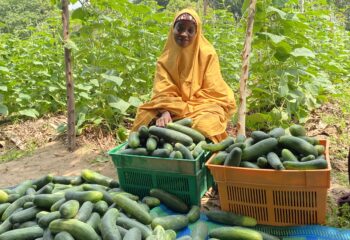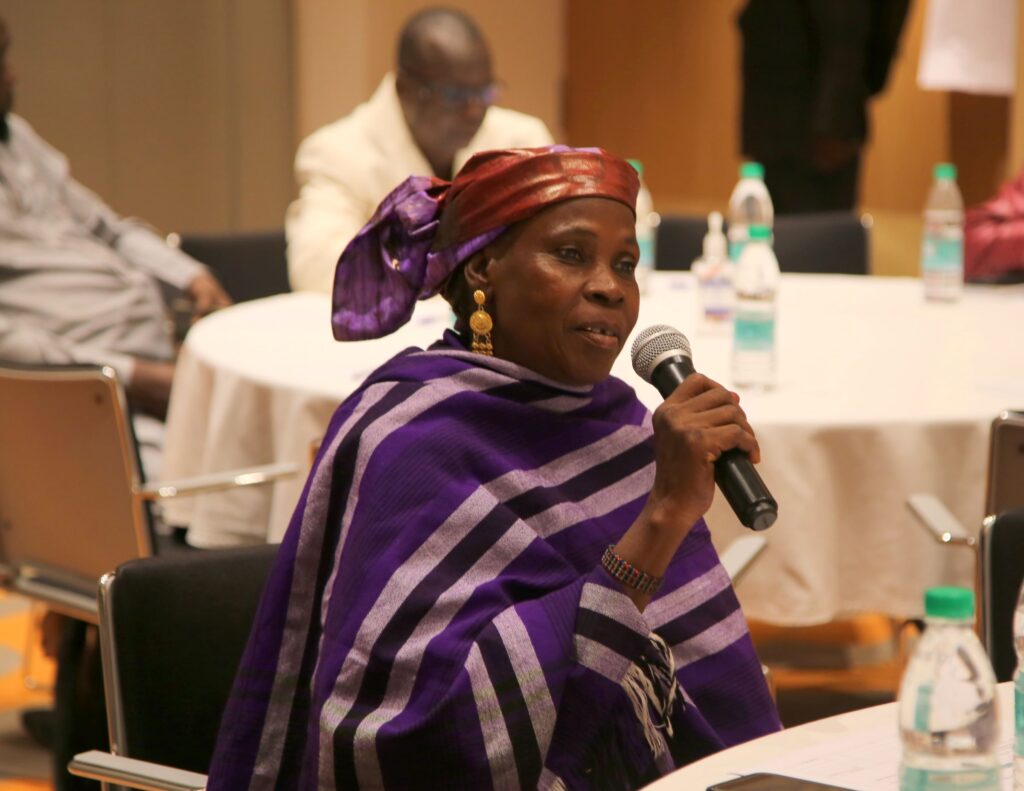
Hadjia Hadiza Nomao, a producer from the village of Guidan Ider, Malabaza Commune, in the Tahoua Region of Niger, formerly did not engage in agricultural activities. She depended on men from her village, as she did not earn an income of her own. Then in 2014, Hadjia began collaborating with IFDC through the Fertilizer Sector Reform Support Project in Niger (PARSEN) and became one of the first beneficiaries of the pilot phase of the project’s targeted subsidy.
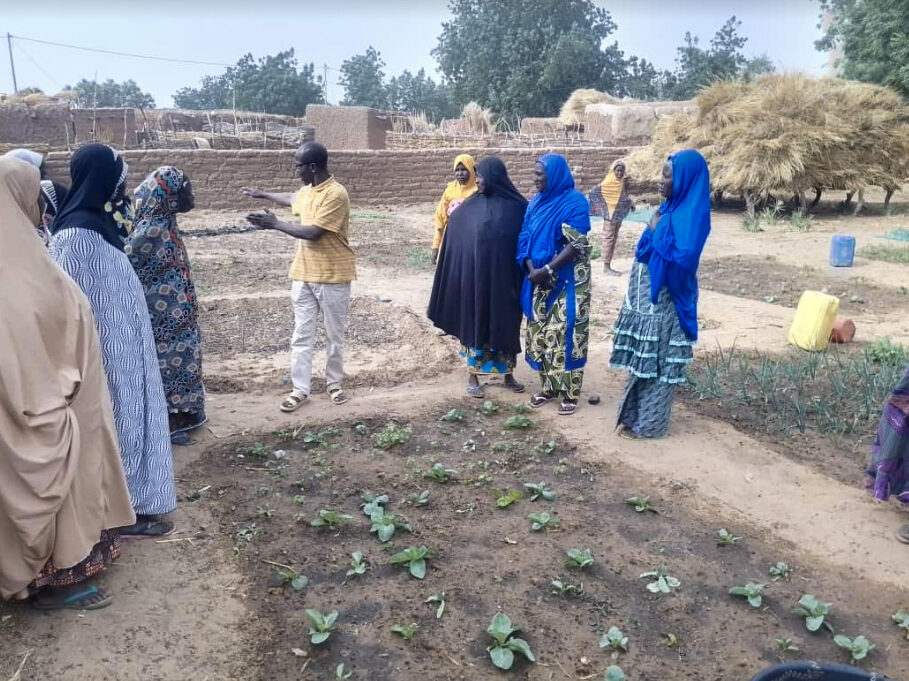
A few years later, the Integrated Seed Sector Development in the Sahel (ISSD/Sahel) project invited Hadjia to take part in an informational study trip to Uganda. The trip brought together members of the Association of Private Seed Producers of Niger (APPSN) and provided an opportunity for participants to learn about the Ugandan seed sector.
Upon Hadjia’s return from the trip, she was asked to identify 10 surrounding villages and to form a union to train producers, especially women and youths, through demonstration fields of rainy and off-season crops.
Hadjia accepted this challenge and founded the ASKIA Karakara Women’s Union, serving as its president. The union established the demonstration fields with assistance from the Sasakawa Africa Association (SAA), a principal partner of ISSD/Sahel. In addition, the union participated in training offered by the project on marketing, seed production, and sales to increase the union members’ income.
Through training and support, the women were able to formalize ASKIA Karakara and the union became a member of APPSN, with recognition and participation in activities on a national and international scale.
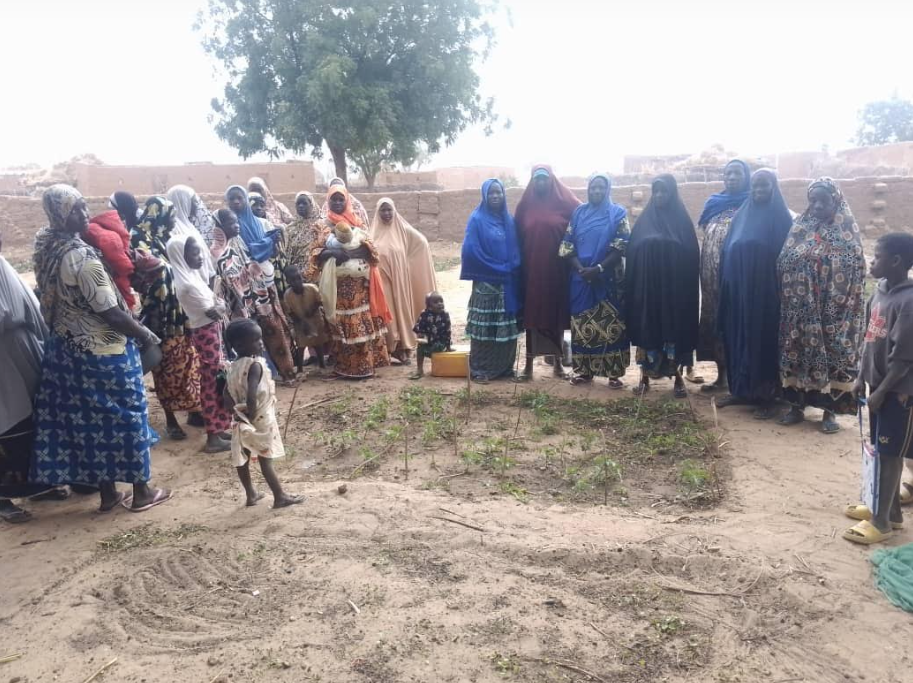
Now, through ISSD/Sahel’s training, the ASKIA Karakara Women’s Union produces crops such as cowpea, onion, potato, cabbage, and tomato.
Since Hadjia’s engagement with PARSEN and ISSD/Sahel, she has noticed a progressive evolution in the lives of the women in her village, especially those from the union.
“Our collaboration with ISSD/Sahel has been very helpful for the women and youth of our region because we have benefited from the provision of fertilizers and improved seeds.”
Hadjia Hadiza Nomao, President of the ASKIA Karakara Women’s Union
Further, Hadjia expressed her gratitude for ISSD/Sahel by sharing that the project’s various forms of support have allowed the women from the union to enhance their community’s access to these quality seeds.
Since becoming a formal union under APPSN through ISSD/Sahel support, the group has also benefited from kiosks and motorized tricycles for selling the seeds and crops they produce, improving their work conditions. This has enabled union members to raise their profiles and increase their incomes by selling in the surrounding villages.
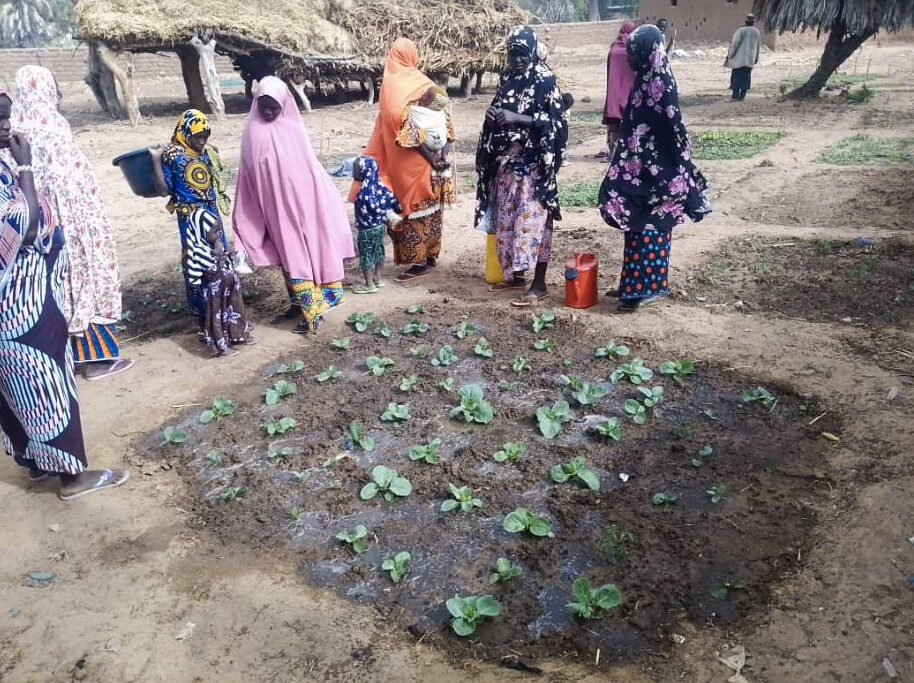
Today, several women from Hadjia’s village have small plots of land for market gardening. This has enabled them to become more self-sufficient in terms of their production, allowing them to earn more income to contribute to their children’s schooling and to meet other household needs.
ISSD/Sahel is a four-year project (2020-2024) in Mali and Niger funded by the Embassy of the Kingdom of the Netherlands. It operates under a consortium of four organizations: IFDC, Sasakawa Africa Association (SAA), KIT Royal Tropical Institute, and the International Crops Research Institute for the Semi-Arid Tropics (ICRISAT).
The Fertilizer Sector Reform Support Project in Niger (PARSEN) (2018-2024), funded by the Millennium Challenge Corporation (MCC)/Millennium Challenge Account (MCA) and implemented by IFDC, is responsible for providing technical support in the implementation of the fertilizer sector reform instituted in 2018 by the Ministry of Agriculture in Niger.



